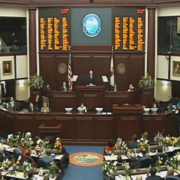A sound legal foundation for your Condominium or Homeowners’ Association is important
The collapse of the Champlain Towers building has brought renewed interest on structural building integrity to many Condo and HOA Associations. We are seeing many Associations operating older buildings putting out bidding for new engineering structural review.
Such an engineering study will help insure the soundness of a building’s structural foundation. However, what about an Association’s legal foundation? Is the legal foundation sound when an Association is operating under old governing documents designed with the Developer in mind instead of the end users (purchasers) of the units?
Developer documents are drafted to assist the Developer in selling as many units as possible as quickly as possible so that the Developer can cash out and get on to building the next Development.
The Developer typically won’t be living in the project so there is no personal incentive to necessarily make the documents end user friendly. When there is no long term commitment and quick sale is the name of the game, such Developer documents many times will not require approval or disapproval of prospective purchasers or tenants or have well thought out protections to prevent owners from altering their units, homes, common element and limited common elements, or common areas or limited common areas without first obtaining the approval of the Board of Directors or an Architectural Review Committee. Adequate restrictions on pets, vehicles and guests may be non-existent or highly inadequate. These type restrictions may be left out by the Developer’s attorney drafting the documents because of the Developer’s client’s worry that they may inhibit or slow down sales.
If you limit pets or smoking, the Developer may believe sales to pet owners or smokers may be lost. If you have approval processing of prospective purchasers or tenants, those individual with shaky backgrounds might not apply to purchase or lease. If you prohibit recreational vehicles, boats or commercial trucks, that’s another group of potential buyers that could be lost.
Another problem with Developer documents is that they won’t necessarily reflect the current laws because the Developer drafter is using an old boiler plate, or many laws have changed since turnover of the project to the owners by the Developer. The result of this deficiency is that the Board of Directors and Officers may follow what the outdated documents say only to find out later that they are violating current law on the matter as the law could have changed significantly since the documents were written. This puts the Association in jeopardy of being sued by unhappy or dissident owners.
We get many calls from Association Directors and Officers who have old Developer documents because the documents are many times ambiguous and don’t address important matters adequately or clearly; such as who is to maintain, repair, replace or insure what parts of the units or homes, the limited common elements and the common elements or common areas (Association or Owner?). This can drive up legal costs to the Associations in addition to the liability exposure to the Board.
The numerous problems trying to operate under old outdated documents can be solved by totally rewriting the Declaration of Condominium or Declaration of Covenants (for HOA’s), Articles of Incorporation and Bylaws of the Association.
The process usually takes from 3 to 9 months with legal counsel working closely with a document rewrite committee consisting of a few committee members with an interest in details involved with such a process. The attorney will usually prepare the first draft for the committee’s review and input. After the committee is satisfied with the product, it usually then moves to the board for Directors input and then input from any interested owners. Finally, a formal proxy vote will be taken from the entire membership. After approval of the members, any house rules and purchase and sales application forms will be updated to conform to the new documents.
Usually, once an Association has their new well written superior documents, legal counsel calls for opinions will wane with corresponding less to be spent on legal fees. Although legal fees will have to be incurred for a rewrite, the savings in diminished future legal fees by having a solid legal document foundation for your Association is usually substantial. In addition, Directors and Officers can sleep well once the Association has new documents that can be relied upon in running the Community.





